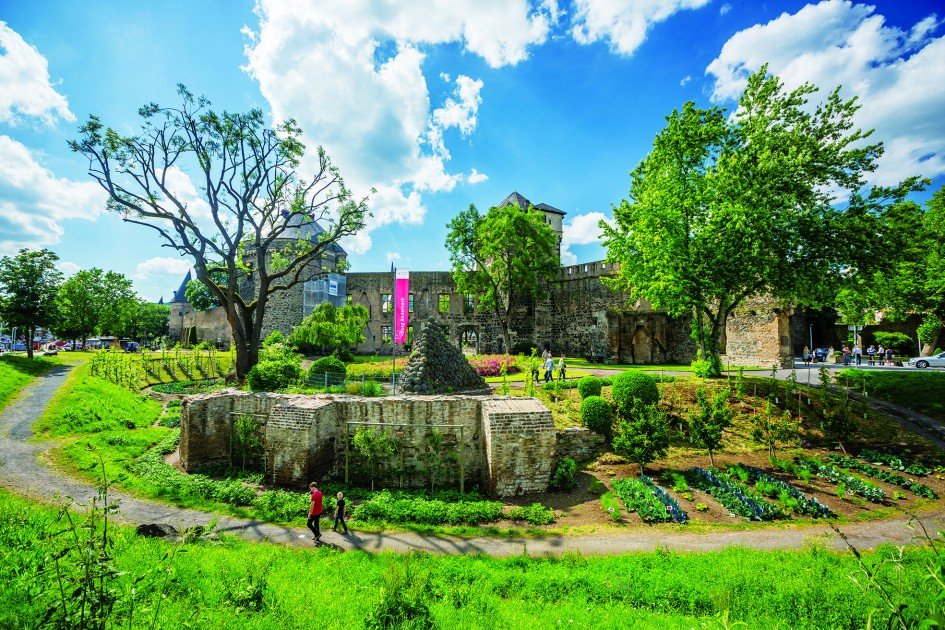Achieved outcomes and impacts:
The main result of the campaign is creating new multifunctional green areas in Andernach (8,000 sq m in the city centre and 13 hectares in the suburbs of Andernach). These urban gardens: help the city to mitigate climate change; create new habitats; promote urban gardening, biodiversity, nature-based solutions and permaculture; develop multifunctional green areas; economic green area maintenance; and educate and involve inhabitants. In addition, the campaign is a cooperation of the Municipality with an NGO, resulting in giving jobs to and integrating individuals who have been facing long-term unemployment. In 2010 and 2012, the city won the gold medal at the "Entente Florale" competition. In 2013, Andernach won the competition "Liveable City" of the German Environmental Aid. In 2014, the project was additionally honored with the Lenné Medal and the ZEIT Knowledge Prize.
Success factors and lessons learned:
The involvement of inhabitants and the long-term unemployed is the key element of success of the project. Both groups are the driving force of the campaign because they feel responsible for the urban gardens and commit to spending their time looking after these green spaces. The promotion of Andernach as the best-known Edible City in Germany also serves to disseminate knowledge of nature-based solutions and attract increasing tourists each year. By increasing the number of sponsorships for individual beds by different community groups, the city reduces its maintenance costs and makes the project more sustainable and self-sustaining in the long-run. A number of synergy effects have developed through this approach. For example, together with the wildflower meadows, the high-quality useful plant areas are a genuine alternative to the usual cost-intensive and elaborately maintained utility lawns and other urban green spaces. Andernach is also part of the Edible Cities Network, an EU-funded project running from 2018 to 2023, which was established so that major centers such as Montevideo, Rotterdam, Guangzhou, Havana and Oslo could exchange experiences and lessons from their garden projects with one another - increasing the likelihood of replication and upscaling.

